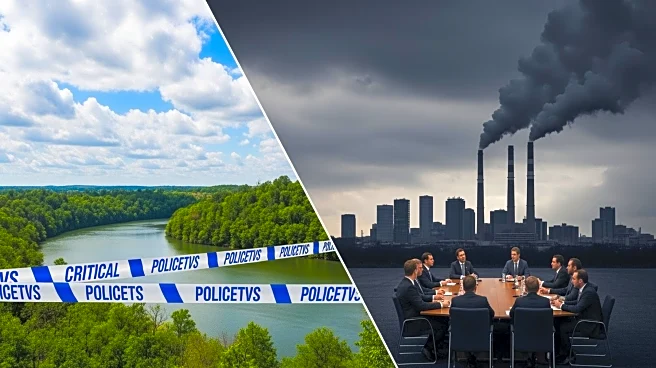What's Happening?
Fossil fuels, including oil, coal, and natural gas, are non-renewable resources formed from prehistoric organic matter. These fuels are essential for electricity generation, transportation, and industrial
processes. However, the burning of fossil fuels is a major source of human-caused emissions, contributing significantly to climate change and environmental degradation. The U.S. Department of Energy is involved in managing fossil fuel resources and developing technologies to reduce emissions.
Why It's Important?
Fossil fuels have been central to economic development, providing affordable and reliable energy. However, their environmental impact is a critical issue, with fossil fuel combustion being a leading cause of greenhouse gas emissions. The transition to cleaner energy sources is necessary to mitigate climate change and its associated impacts. This shift requires substantial investment in renewable energy technologies and policy support to ensure a sustainable energy future.
What's Next?
The U.S. is focusing on reducing fossil fuel emissions through technological innovations and regulatory measures. The development of carbon capture and storage technologies is a key area of research. The transition to renewable energy is expected to reshape energy markets and influence economic and geopolitical dynamics.
Beyond the Headlines
The shift away from fossil fuels involves complex ethical and social considerations, including the need for equitable transitions for workers in fossil fuel industries and ensuring energy access for all. The transition also highlights the importance of international cooperation in addressing climate change and promoting sustainable development.











